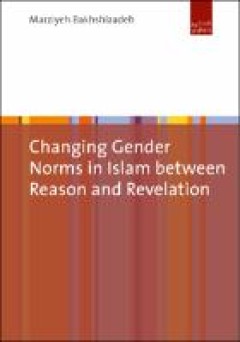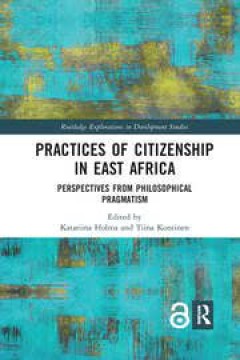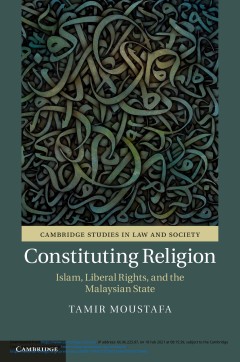Filter by

Changing gender norms in Islam between reason and revelation
Women‘s movements in Islamic countries have had a long and arduous journey in their quest for the realization of human rights and genuine equality. The author examines whether discriminatory laws against women do in fact originate from Islam and, ultimately, if there is any interpretation of Islam compatible with gender equality. She investigates women’s rights in Iran since the 1979 Revolu…
- Edition
- -
- ISBN/ISSN
- 9783863882983
- Collation
- 247p
- Series Title
- -
- Call Number
- 305.48697 MAR c

Practices of Citizenship in East Africa : Perspectives from Philosophical Pra…
Practices of Citizenship in East Africa uses insights from philosophical pragmatism to explore how to strengthen citizenship within developing countries. Using a bottom-up approach, the book investigates the various everyday practices in which citizenship habits are formed and reformulated. In particular, the book reflects on the challenges of implementing the ideals of transformative and criti…
- Edition
- -
- ISBN/ISSN
- 9780429279171
- Collation
- xi, 258 p.
- Series Title
- -
- Call Number
- 323.609678 PRA K

Good citizenship for the next generation : a global perspective using IEA ICC…
This Open Access book presents an international group of scholars seeking to understand how youth from different cultures relate to modern multidimensional concepts of citizenship, and the roles that education and society have in shaping the views of the world’s future citizens. The book also explores how different aspects of citizenship, such as attitudes towards diverse population groups an…
- Edition
- -
- ISBN/ISSN
- 9783030757465
- Collation
- xii, 215 p.
- Series Title
- -
- Call Number
- 370.115 TRE g
Civic media literacies : re-imagining human connection in an age of digital a…
Civic life today is mediated. Communities small and large are now using connective platforms to share information, engage in local issues, facilitate vibrant debate, and advocate for social causes. In this timely book, Paul Mihailidisexplores the texture of daily engagement in civic life, and the resources—human, technological, and practical—that citizens employ when engaging in civic actio…
- Edition
- -
- ISBN/ISSN
- 9781315526058
- Collation
- xiv, 164 p.
- Series Title
- -
- Call Number
- 302.23 MIH c

Constituting religion : Islam, liberal rights, and the Malaysian state
Most Muslim-majority countries have legal systems that enshrine both Islam and liberal rights. While not necessarily at odds, these dual commitments nonetheless provide legal and symbolic resources for activists to advance contending visions for their states and societies. Using the case study of Malaysia, Constituting Religion examines how these legal arrangements enable litigation and feed th…
- Edition
- -
- ISBN/ISSN
- 9781108539296
- Collation
- x, 187p. : ill.
- Series Title
- -
- Call Number
- 342.595085297 MOU c
 Computer Science, Information & General Works
Computer Science, Information & General Works  Philosophy & Psychology
Philosophy & Psychology  Religion
Religion  Social Sciences
Social Sciences  Language
Language  Pure Science
Pure Science  Applied Sciences
Applied Sciences  Art & Recreation
Art & Recreation  Literature
Literature  History & Geography
History & Geography